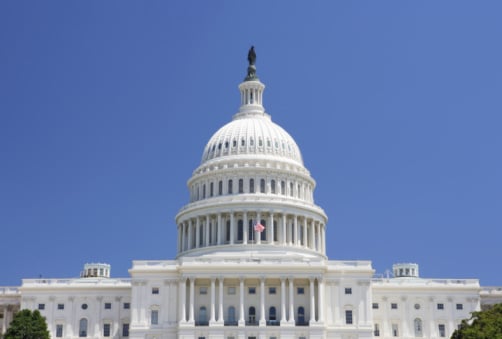 The independent Congressional Budget Office issued its new estimate of when the federal government will reach its debt ceiling — late February or early March. In its “Federal Debt and the Statutory Limit, November 2012,” the agency reported that the Treasury Department could use “extraordinary measures” to extend the date for when the current limit of $16.394 trillion is hit. Congress and the administration may use the revision to claim that a compromise on budget matters and tax cuts can be extended beyond the end of the year. That will not allay the anxiety that both businesses and individuals have about year’s end and the automatic budget and tax changes to be triggered according to current law.
The independent Congressional Budget Office issued its new estimate of when the federal government will reach its debt ceiling — late February or early March. In its “Federal Debt and the Statutory Limit, November 2012,” the agency reported that the Treasury Department could use “extraordinary measures” to extend the date for when the current limit of $16.394 trillion is hit. Congress and the administration may use the revision to claim that a compromise on budget matters and tax cuts can be extended beyond the end of the year. That will not allay the anxiety that both businesses and individuals have about year’s end and the automatic budget and tax changes to be triggered according to current law.
The illusion that Americans will be satisfied that a later and new target date for decisions about the budget is just that — an illusion. It is worse than kicking a can down the road, because the witnesses of the can kicking know the eventual outcome. The longer the fight over the budget and taxes goes on, the more likely it is that both sides will dig in. A first-quarter collapse in the economy because of provisions that take place on January 1 is easy for the debaters to ignore. A quarter is not a long enough time to affect business and consumer spending, many politicians say. A March resolution will come in time to keep GDP improvements from 2012 on track.
But consumers and businesses already have had the better part of a year to set plans for new tax rates. Some evidence of that included the new habit of public companies moving dividends forward into 2012 to help their investors with taxes. Stocks are being sold before December 31 for the same reason. Sales of other assets will occur this year because of fear of new capital gains levies.
It is likely that businesses have become more cautious about hiring and expansion as well. Several surveys of large and small businesses show that. And CEOs are not traveling to the White House for fun. These chief executives have made the case adamantly that year’s end is year’s end. They are not willing to make plans based on hope.
The federal borrowing limit may not be reached until mid-March, but very few Americans who see the brief relief as any kind of positive news.
Douglas A. McIntyre
Essential Tips for Investing: Sponsored
A financial advisor can help you understand the advantages and disadvantages of investment properties. Finding a qualified financial advisor doesn’t have to be hard. SmartAsset’s free tool matches you with up to three financial advisors who serve your area, and you can interview your advisor matches at no cost to decide which one is right for you. If you’re ready to find an advisor who can help you achieve your financial goals, get started now.
Investing in real estate can diversify your portfolio. But expanding your horizons may add additional costs. If you’re an investor looking to minimize expenses, consider checking out online brokerages. They often offer low investment fees, helping you maximize your profit.
Thank you for reading! Have some feedback for us?
Contact the 24/7 Wall St. editorial team.